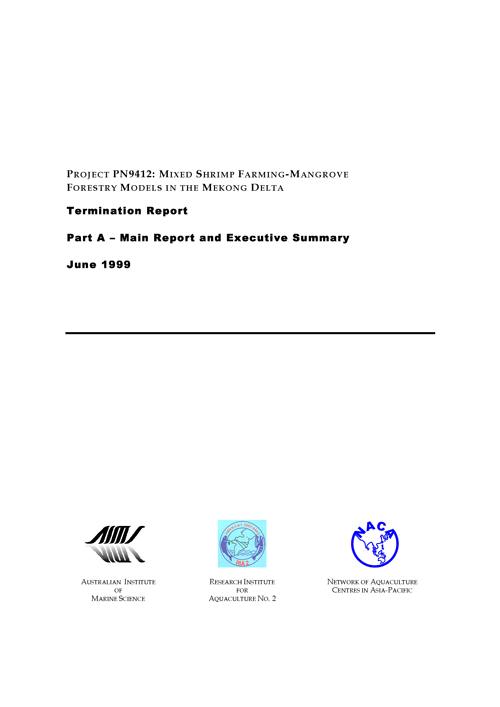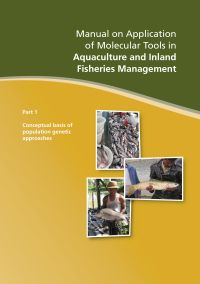Mixed shrimp farming-mangrove forestry models in the Mekong Delta: Termination report
20 November 2003 | 2054 Downloads | .pdf | 775.22 KB | Better management practices, Health and Biosecurity, Livelihoods, gender and social issues, Nutrition and feeding, Aquatic plants, Shrimp, Crabs and lobsters, Environment and Sustainability, Vietnam, Water quality
This is the terminal report of the ACIAR-funded project "Mixed shrimp farming-mangrove forestry models in the Mekong Delta" (PN9412). The overall goal of the project was to optimise the economic yield from mixed shrimp aquaculture-mangrove forestry farming systems in Ca Mau Province in a sustainable manner. It was carried out mainly in two State Fisheries-Forestry Enterprises (SFFEs) in Ca Mau Province, at the southern tip of Vietnam. Specific objectives for the project were to:
- Investigate factors controlling the yields of shrimp and wood from existing shrimp farming-mangrove forestry systems in Ca Mau Province.
- Experiment with shrimp pond and mangrove forest management to evaluate different culture options.
- Identify improved culture methodologies for these systems and to quantify where possible their expected yields and costs.
- Assist national and provincial authorities to transfer the results of the project to the wider coastal farming community in the Mekong Delta.
The project documented large variations in shrimp yields and incomes between farmers, with successful farmers generating up to 16 times more income largley due to better practices and pond design. The report identifies factors contributing to successful crop outcomes and better management practices that could reduce disease risk, increase yields and profits.
Copyright, all rights reserved.

